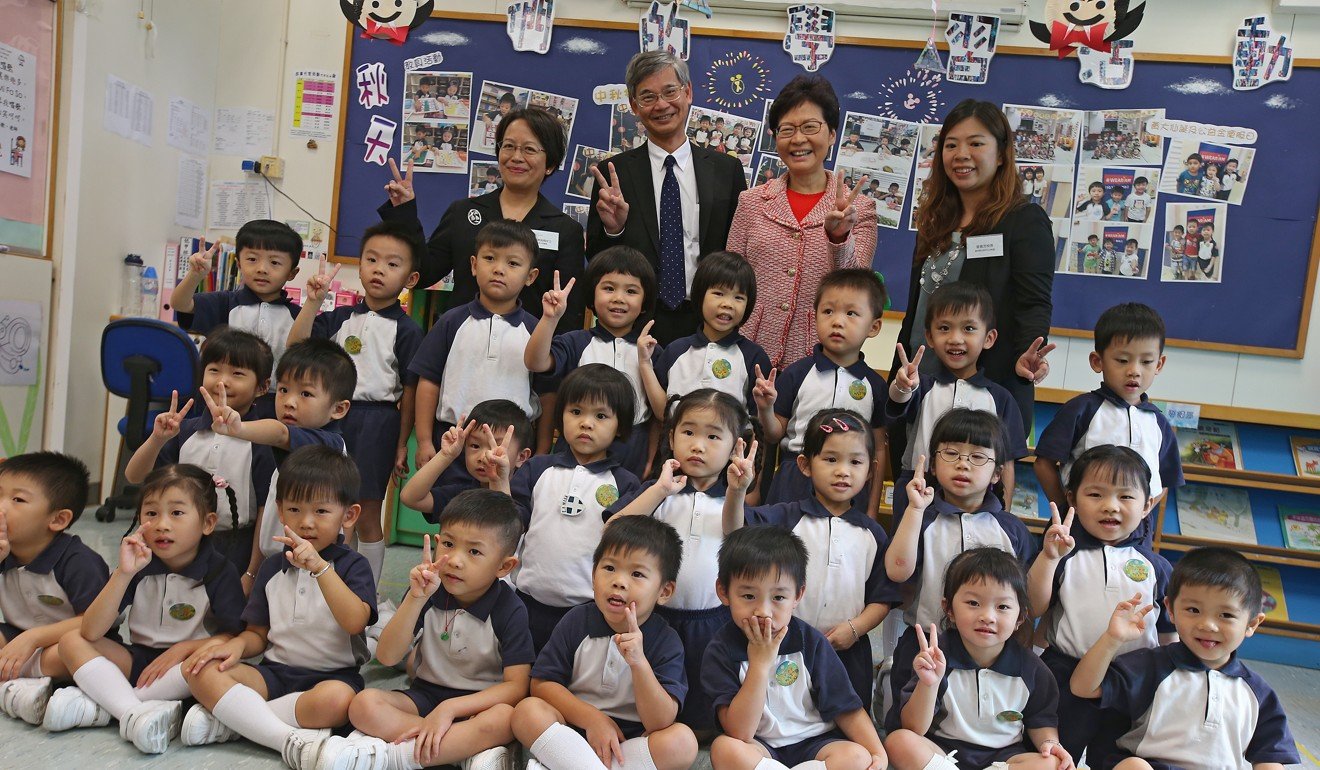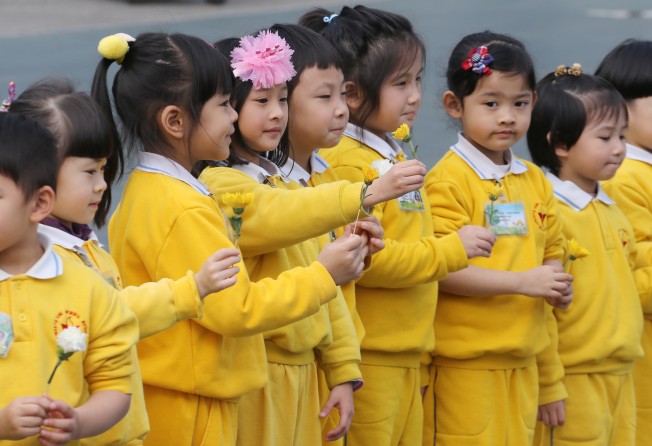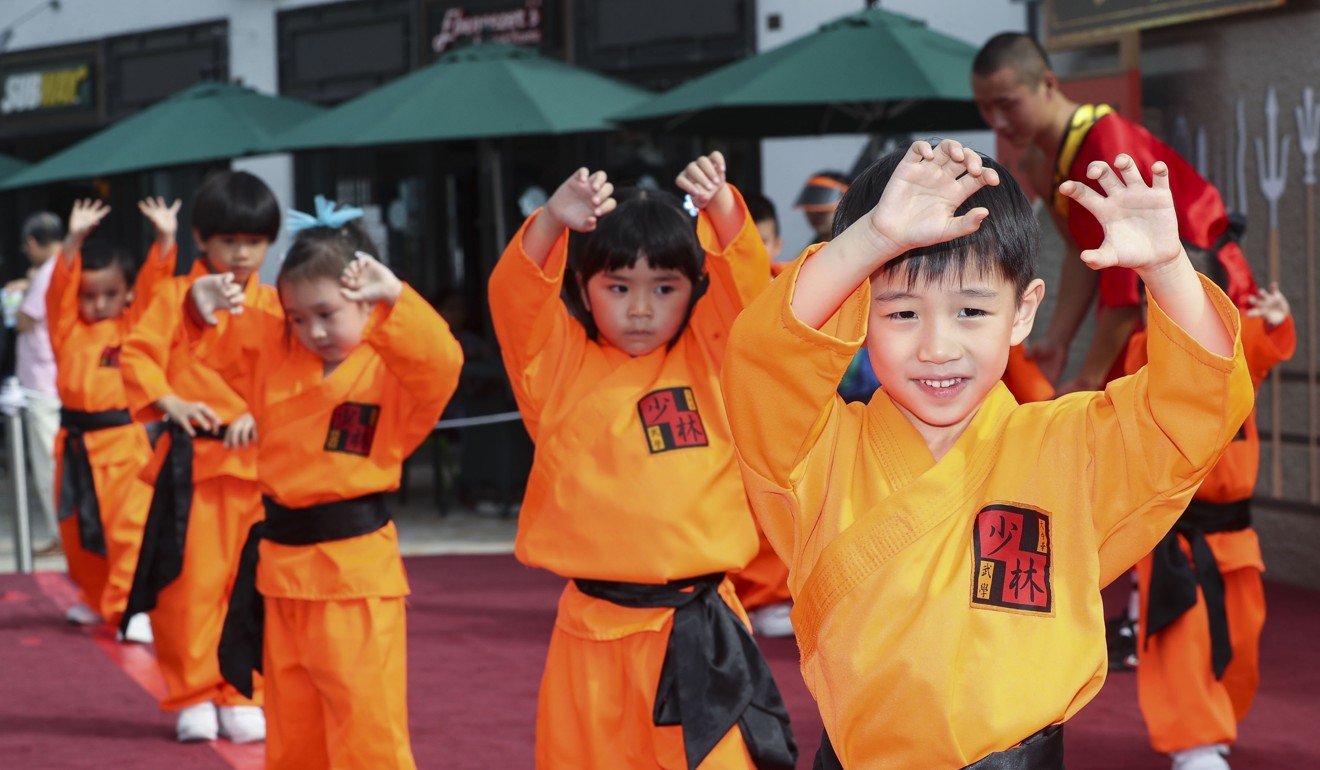
Full marks for Hong Kong’s new Free Quality Kindergarten Education Scheme
City’s parents and teachers welcome scheme’s agenda for affordable education and easier access to specific services

It may be a little early to give a definitive verdict, but most signs point to the government earning full marks – and perhaps a gold star or two – for the Free Quality Kindergarten Education Scheme, which came into effect from the 2017/18 school year.
It marks another significant step towards the long-stated goal of providing 15 years’ free schooling for all eligible children and, overall, has been given a warm welcome by parents, teachers and administrators.
In essence, the new scheme was designed to largely replace the Pre-primary Education Voucher Scheme (PEVS) introduced in 2007. This granted parents direct fee subsidies, in the form of vouchers, to defray the cost of kindergarten classes and give choices.
The latest initiative takes things further. The main policy objective is still to provide a quality, affordable education from the early years, but it also looks to enhance accessibility to different “modes of services” which suit specific needs.

A key difference is that local non-profit-making kindergartens which join the scheme – rather than parents – now receive a basic subsidy for the provision of three-year, half-day (HD) teaching for all eligible pupils. This is intended to cover expenditure on salaries for teaching and support staff, and other normal operating costs. In principle, it should be enough to ensure there is no need to charge fees for half-day services, though without a built-in guarantee.
In certain cases, school-specific grants are also available for things like rental subsidy, maintenance, catering staff, and support for non-Chinese-speaking students. And for kindergartens offering whole-day (WD) or long whole-day (LWD) services, the level of financial support may be increased on the understanding that parents are expected to chip in.
That said, the Education Bureau has set a ceiling on the fees scheme kindergartens can charge. For the current school year, it stands at HK$9,960 and HK$25,890 per student per annum for HD and WD/ LWD classes respectively.
Ian Tsang, an education consultant who has contributed to various studies over the past 10 years, takes a positive view of these developments and the speed with which they have been enacted. He notes, though, that as with any such change, there are still a few wrinkles to iron out.
Given the government’s huge financial resources, it clearly makes sense to move beyond the previous system of having only privately-funded kindergartens in Hong Kong. But in the push for quality and affordability, further questions are bound to come up about everything from classroom teaching and curriculum content to educational philosophy and campus design.
“Ten to 15 years ago, there was basically no ‘control’ over how kindergartens taught and were organised and, from that perspective, you had no idea if they were doing a good job for kids,” Tsang says. “With the new scheme, the government can have more say on how the early childhood programme should be structured and run. I’m quite sure ‘aided’ kindergartens are on the way, maybe in the next 10 years, as part of the general switch from private to public schooling.”
The recent changes, he notes, mean that 90 per cent of half-day local kindergartens are now effectively free. To date, that’s where the emphasis lies, with the authorities still cautious about extending what would amount to full subsidies to cover whole-day classes.

The decision stems from research showing that an HD programme can meet the requirements of a standard kindergarten curriculum and that young children need more “family time” where they can play and interact with parents or siblings in a less structured setting.
“Personally, I don’t support full-day programmes,” Tsang says. “They hinder kids in certain ways: too much time in school and not enough with their parents. If both parents have to work, you should treat the extra hours at kindergarten as day care, and not give more to learn. The downside of full-day is that kids don’t sleep enough. They need quality learning and time to rest.”
In signing up for the new scheme, participating kindergartens have been asked to make certain commitments. These include achieving a teacher-pupil ratio of 1:11, engaging in lesson planning and professional development, and regular communication with parents.
They are also expected to establish a career ladder and offer competitive terms and conditions to attract and retain well-qualified teachers. There is now an officially recommended salary range for each position, along with moves towards formulating a recognised “competencies framework”. In addition, there will be more support for children from low-income families and those with diverse learning needs. In the longer term, the government will take steps, where feasible, to improve premises and facilities.
“Finding suitable campuses for kindergartens is one of the biggest issues, right now,” Tsang says. “Rental costs are so high in some areas that it’s not possible to cover them with the subsidy, so parents still have to pay something extra. And, of course, with some parents having their own thoughts on the best environment and curriculum for early childhood education, there is still demand for fee-paying kindergartens, and that will continue to be the case.”